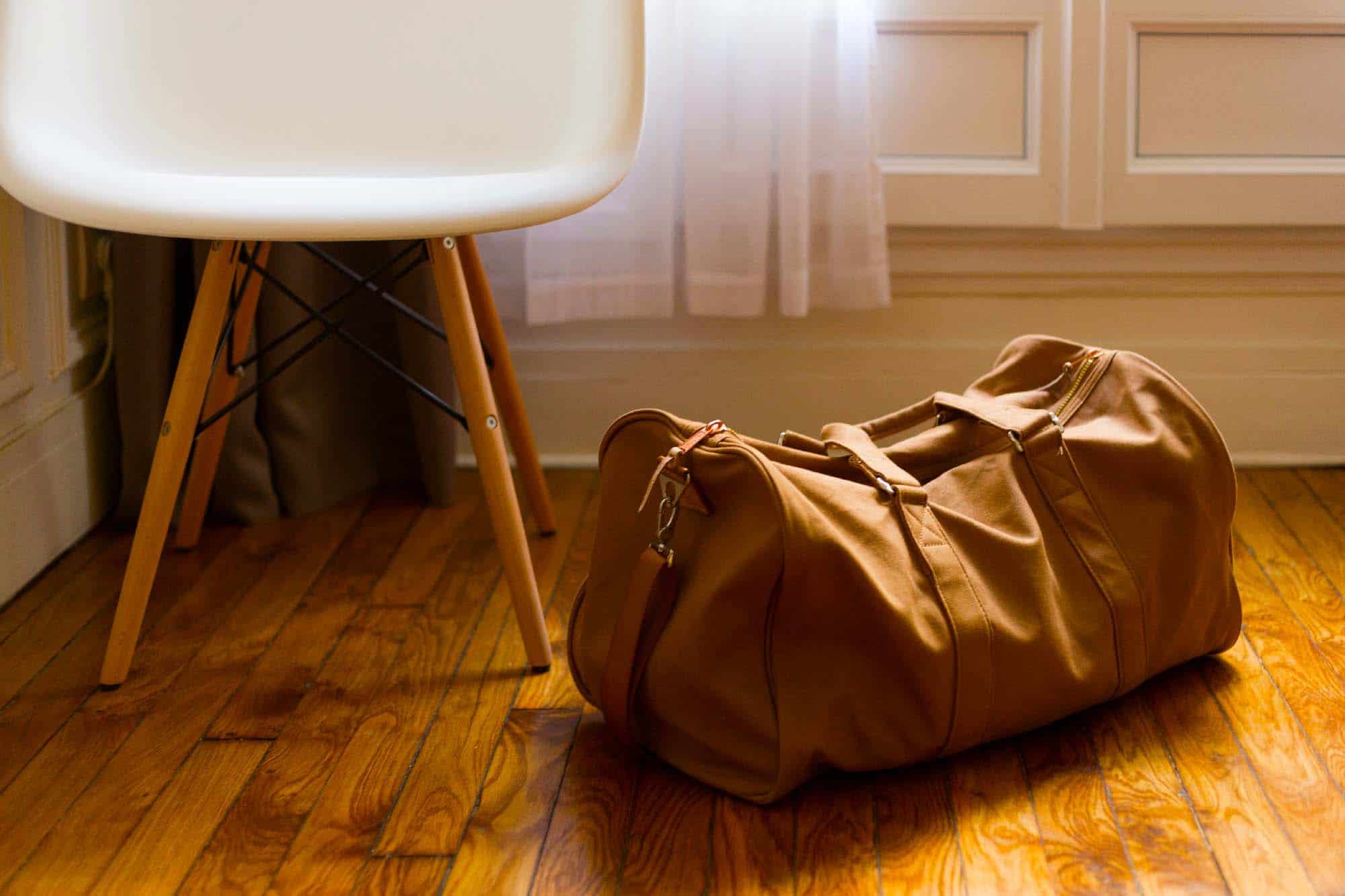In order to overcome addiction, one has to be determined to undergo rehab and treatment. Taking the first step is always the most difficult and challenging part because you’re going to leave several things behind while putting all your efforts into recovery.
Before going to rehab, make sure everything is settled so you don’t have to worry about things and all your focus will be on getting better. Here, we answer the common questions by people who are considering or planning to go to rehab.
How Do I Prepare for Rehab?
Once you decide to go for rehab, most of your time is allotted for treatment. To keep things in order, here are some important things you need to do.
- Settle Any Financial or Legal Obligations: In order to have peace of mind regarding the outside world when you’re inside the rehab center, it’s better if you’ll settle any liabilities and bills. You can go to the bank and authorize an automatic payment system for your monthly bills so payments are directly taken out from your account. The second option is to ask a family member or friend you trust to make the payments for you.
- Get Strength from Family and Friends: Convincing yourself to go for rehab is never easy and takes so much courage. Before going to rehab, spend time with your family and friends to enrich yourself with enough will and determination to get better. This way, you are able to erase all doubts and fears.
- Be Patient and Open-Minded: Fear, doubt, and prejudices are the three things that will hamper your treatment. Freeing your mind from these things and opening it to psychological interventions will further speed up your recovery from addiction. For some, they treat the rehab center like a prison cell where it isolates them from the real world. You need to build patience as proper healing comes with time. Meditation can help you gain patience inside the rehab center.
- Bring Only the Essential Things: When you’re going for treatment, never bring things that remind you of work and family as it can divert your focus during recovery. Choosing the essential things to bring is critical.
How to Know if You Need Help?
To determine if you are under the influence of a substance or an unhealthy behavior is a tricky situation. Why? Because people tend to justify their actions and convince themselves it is just normal.
If you think you have the risk of having a substance use disorder or unhealthy behavioral patterns, go to a clinician and undergo diagnosis. Self-awareness for these conditions is important because it can affect your quality of life and loved ones. Below are some common signs to observe to know if you have any addiction.
Common signs that you are addicted to something:
- Reinforcing Feeling: Ask yourself if there are some discreet habits or substances you take in which give you pleasure and comfort.
- Repetition, Craving, and Dependence: Ask yourself if you constantly crave that habit or substance due to its rewarding feeling. Do you feel a constant compulsion of doing it? Are you having a hard time resisting that compulsion?
- Withdrawal Symptoms: Do find yourself feeling grumpy and highly irritable if you have not done that habit or taken that substance? Does the thought of quitting hurt you? The higher the negative feeling from stopping these cravings, the greater is one’s dependence on it.
- Lower Quality of Life: Did your relationship with family and friends got worse when you started being dependent on that substance or habit? Did your self-esteem and values decline from doing these unhealthy actions?
- Constant Failure from Quitting: Are you constantly saying to yourself that you want to stop but most often, you fail? If this is true, then you are having a great tolerance and dependence on the substance or habit already.
Should I Travel for Rehab?
There are both positive and negative effects when it comes to deciding whether you want to go to a local treatment center or a facility out of state. What really matters is you are going to a rehab center that offers quality treatment and care.
Pros: Traveling for Rehab
- Your options are not limited to what is available in your area
- Better mind conditioning that you are going to travel for recovery
- Gives a fresh start and no fear of being judged by people you know because you’re in a new place
- Away from the negative influence of peers and families
- Better focus because there’ll be less chance of quitting from treatment due to family and daily routine attachment
Cons: Traveling for Rehab
- Less chance for family and loved ones to visit and give moral support
- The higher cost which may not be covered by the insurance plan
- Difficulty to set an aftercare plan for the patient
Pros: Local Rehab Center
- Availability of loved ones to visit and involve in family therapy
- An easier way to set up an aftercare plan for the patient
- Lesser cost for the treatment
Cons: Local Rehab Center
- Higher risk of exposure to the negative influence which might worsen addiction
- Higher chance of quitting from treatment due to the accessibility of home
Why Does Rehab Have a Stigma?
The community always have prejudices to people going to a rehab center and it does affect the patient’s state of recovery. These negative thoughts about people getting treatment stem from the reasons and effects of getting the addiction.
These negative prejudices continue even when the person finishes the treatment process. People tend to feel uncomfortable and anxious with individuals coming out from rehab centers due to the mindset that they are hostile and capable of inflicting harm.
Stigma
Stigma or social stigma is a prejudice or discrimination to a person or group of people who have done something deviant from the social norms and values.
Strategies in Overcoming Stigma
There are several ways to counteract these things to avoid hampering your fast recovery.
- Acceptance: You must accept your weakness and mental disorder and the need for treatment. This makes treatment much smoother because there is less resistance to the treatment process.
- Answer the Stigma: Never be afraid of responding to social stigma. You are still part of the society bearing the right for the freedom of speech. Educate yourself and others about mental disorders and that it can be treated.
- Avoid Self-Isolation and Join Support Groups: Keeping yourself away from the world will never help. Talk to your family, socialize with friends, and join support groups. Sharing one’s dilemma and thoughts lighten up the burden and speed up recovery.
- You are not the illness: Keep in mind that “you” and the illness are two separate things. Hence, you can always cure that disorder without being less of a person.
What Makes a Top-Rated Treatment Center?
It is quite challenging to choose which rehab center provides the best treatment program for people suffering from substance abuse and behavioral disorders. Aside from having the best facilities and personnel, most patients also consider the cost of the facility. Here are some important things to look for in a good rehab center.
- Accreditation and Licenses: To ensure your safety and treatment, choose a rehab center whose operation and existence is authorized by the government. Likewise, these treatment centers must undergo quality control conducted by third-party accreditation agencies. The therapists and medical personnel in the center must have licenses accredited by the state.
- Variety of Treatment Programs: The rehab center must be capable of offering several treatment programs suitable for any patient. Both individual and group session therapies must be conducted by the establishment.
- Aftercare Program: The aftercare program is important for it provides a smooth transition when the patient comes out from the rehab center. Most good treatment centers have a quality aftercare program offered to their patients. In line with this, ask the rehab center if they also have “vocational support” to help patients get a temporary job to keep them busy and acquire a sense of responsibility.
- Evidence-Based for Success Rate: One practical way of assessing the effectiveness of any rehab center is the documentation for the successful recovery of their patients. These are documented testimonials, photos, procedures, and test results to support their claim of being a reputable and effective rehab center.
- Exercise and Nutrition: The speed and effectiveness of treatment and recovery from any addiction are also greatly attributed to the nutrition and physical state of the patient. A good rehab center must incorporate proper nutrition to nourish the mind and body of the patients. Likewise, including exercise in the treatment program enhances the discipline and focus of the patient.
How Long Does Detox Take?
When a patient undergoes detox, the substance is removed from the body while withdrawal effects associated with the substance are managed. Detox in a rehab facility varies for each program type. A person can undergo detox for around 5 to 14 days.
The duration of this process is influenced by several factors which include the following:
- Type of substance taken
- Amount and duration of abusing the substance
- Physical condition (age and gender) of the patient
- Medical history of the patient
- Other substances taken along with the main substance abused
In order to speed up recovery and treatment, most rehab centers incorporate proper nutrition and exercise for the patient. These two things help in establishing focus, discipline and good health.
What Happens Before Treatment?
Before you receive a customized treatment program, a series of steps must be done to further understand the process. Here are some of the basic steps you must undergo.
- Initial Consultation: The therapist or medical staff will answer all the patient’s questions regarding the treatment plan. The staff will also lay out all the options for treatment and the preparations needed. In this step, the patient will know the possible outcomes and things to do for the treatments offered.
- Psychological Assessment: In this stage, a psychiatrist will assess the mental condition of the patient before treatment. This is important in order to know if the patient has a comorbid mental disorder so that a better treatment program can be offered.
- Physical Assessment: This stage will assess the addiction level of the patient and determine if there any health diseases present. Likewise, a withdrawal assessment is also to be conducted to determine the approximate severity of any withdrawal effect.
- Custom Treatment Plan: In this last stage, the results of the psychological and physical exam will serve as the basis for crafting a customized treatment program for the patient. This program will include detox, psychological therapy, nutrition, exercise, and an aftercare program.





